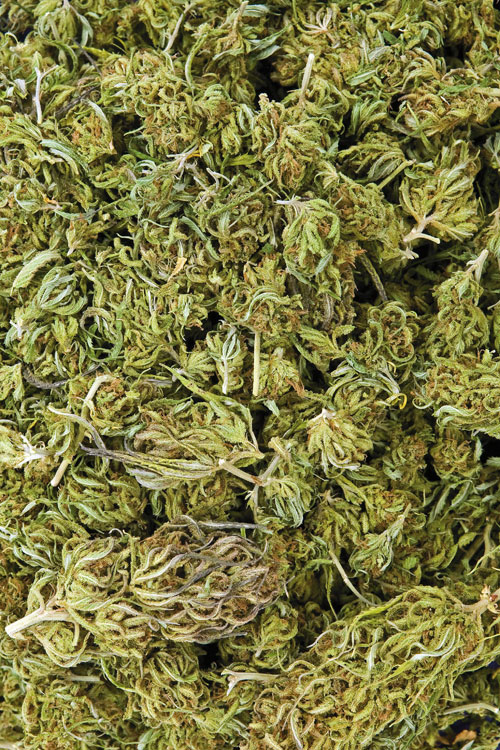
The Oregon Board of Pharmacy announced Thursday that it would remove marijuana from the list of “Schedule I Controlled Substances” to a Schedule II classification – meaning the board recognizes that marijuana does have an acceptable medical use. Oregon is the first state in the nation to take such a step, contradicting the federal government’s stance on marijuana. But advocates still are disappointed and plan to appeal.
The Oregon Board of Pharmacy announced Thursday that it would remove marijuana from the list of “Schedule I Controlled Substances” to a schedule II classification – meaning the board recognizes that marijuana does have an acceptable medical use. Oregon is the first state in the nation to take such a step, contradicting the federal government’s stance on marijuana. But advocates still are disappointed and plan to appeal.
“The classification itself shows that medical marijuana patients are still being discriminated against because [marijuana] is still classified with substances like oxycodone, which is one very small step from heroin,” said attorney Gregory Barton, who plans to appeal the decision. “[Schedule II] drugs have caused deaths whereas marijuana is basically a non-toxic herb that hasn’t ever caused any deaths.”
The reclassification comes after Senate Bill 728 passed last year, which required marijuana to be removed from the schedule I list and reclassified. Over the last several months the board listened to testimony and research from advocates and law enforcement officers concerned about abuse before voting on the reclassification.
 |
Medical marijuana is now officially medicine in Oregon. |
The federal government treats marijuana as a non-medicinal Schedule I drug, but more than a dozen states including Oregon allow medical marijuana use. In addition, the regulators in the United Kingdom have approved the first-ever prescription medication derived from the cannabis plant, an MS drug called Sativex. The medication went on sale for the first time today in England.
Schedule I drugs, such as LSD and heroin, typically have no medicinal value and high abuse potential. Marijuana was moved into the schedule II substances, which are said to have “high abuse potential with severe psychological or physical dependence liability but are accepted for medical use in the US and are available by prescription,” according to the press release.
Barton is filing the appeal on the basis that the board didn’t consider the proper factors in its decision making process. “They really ended up ignoring a lot of the scientific evidence and eventually just listened to the political pressures to make it a schedule II.”
Christine McGarvin is a medical marijuana advocate who testified several months ago about the reclassification, and like many other supporters she is disgruntled by the decision.
“We don’t think medical marijuana should be classified any higher than a schedule III at least” said McGarvin. “There is a big difference between schedule II and schedule III in terms of a felony or misdemeanor according to the law.”
For a schedule II classification anyone who is not in compliance with the Oregon Medical Marijuana Act (OMMA), and possesses more than an once is immediately charged with a felony. Possessing less than an ounce of marijuana is treated as a minor violation similar to a traffic ticket under state law.
Both McGarvin and Barton cited discrepancies about where Marinol and marijuana are classified. Marinol is a purified form of THC and it’s a pharmaceutical product, but it’s a schedule III classification. Marinol is already widely available through prescription. According to Barton a less purified form of a substance and the pure form is almost always scheduled in either the same or lower classification, and marijuana and Marinol are the only exceptions. He argues marijuana should at least be scheduled with Marinol, a synthetic form of THC, in the schedule III classification or lower.
This new classification won’t change anything for Initiative 28, which would allow nonprofit dispensaries to sell medical marijuana to patients and enable licensed growers to sell to dispensaries. I-28 already has accumulated an estimated 115,000 signatures, and will likely make it to the November ballot ballot.
Anthony Johnson, chief petitioner for the initiative, said the reclassification doesn’t change anything as a practical matter because the medical marijuana dispensaries would be regulated by the Department of Human Services and not the Oregon Board of Pharmacy.
“As a symbolic victory it does establish the fact that cannabis has a medicinal value and so it may help convince people that sick and disabled patients should have that option and that will convince more people to support the initiative,” said Johnson.
So the controversy continues. Read more about how pot could and already does bring economic development to Oregon as Ben Jacklet reports in “Marijuana Goes Mainstream” from the May 2010 issue of Oregon Business Magazine.
Jessica Hoch is an online reporter for Oregon Business.


